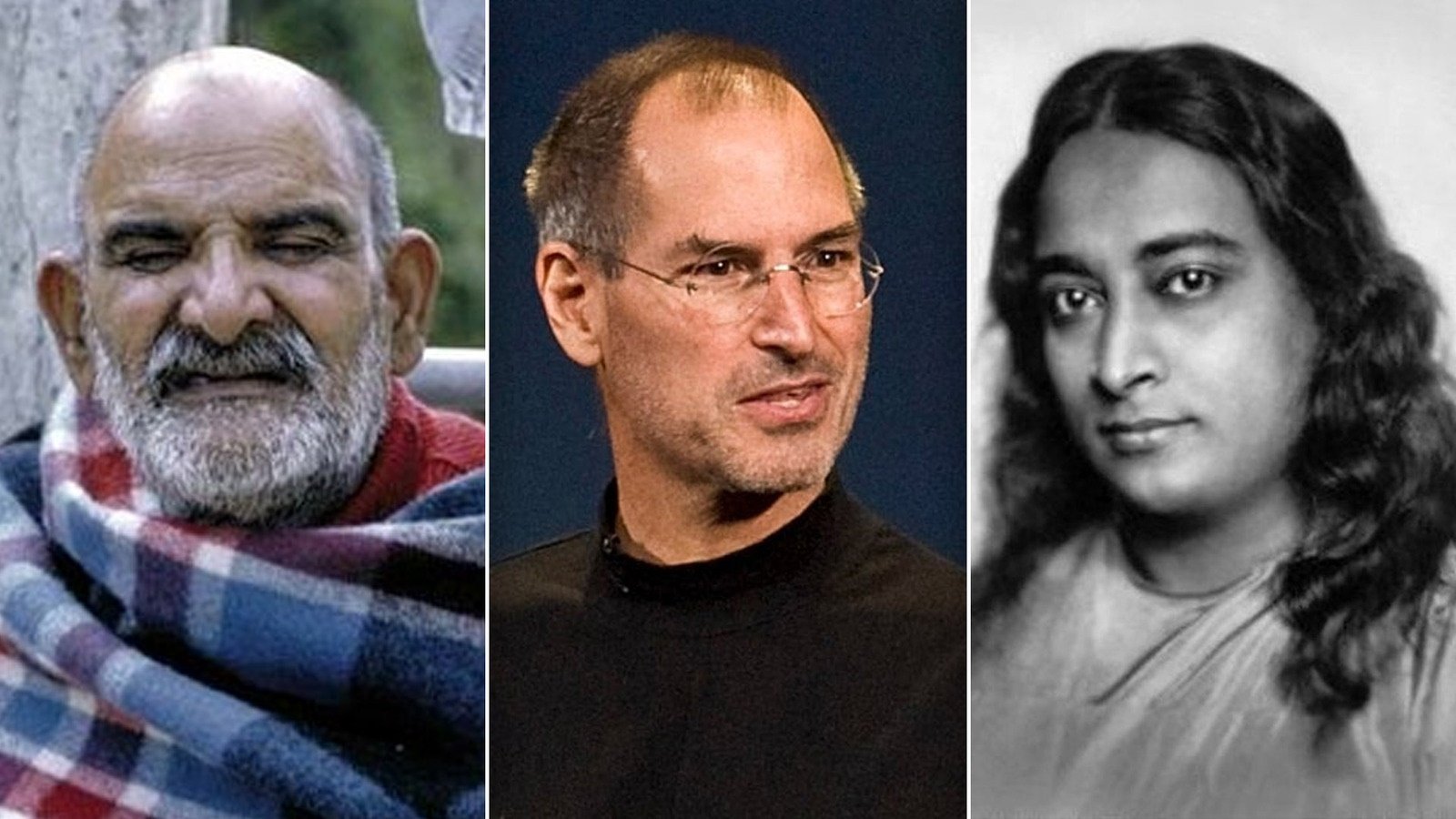The Mahakumbh, one of the largest and most spiritually significant gatherings in the world, has long been a beacon for seekers of truth and enlightenment. Nestled along the sacred confluence of the Ganges, Yamuna, and the mythical Saraswati rivers in India, this grand event attracts millions of pilgrims, saints, and travelers every twelve years. Among its many attendees, the visit of Laurene Powell Jobs, the wife of late Apple co-founder Steve Jobs, stands out as a moment that beautifully merges the mysticism of ancient Indian traditions with the curiosity of a modern world seeking spiritual answers.
The Mahakumbh: A Timeless Spiritual Affair
Before delving into Laurene Powell Jobs’ visit, it’s essential to understand the significance of the Mahakumbh. Rooted in Hindu mythology, the Kumbh Mela is believed to be the moment when drops of the elixir of immortality fell on Earth during a celestial struggle between gods and demons. These sacred sites—Haridwar, Allahabad (Prayagraj), Nashik, and Ujjain—host the event in a rotational pattern, with the Mahakumbh being the largest and most profound of these gatherings.
For devotees, the Mahakumbh is an opportunity to cleanse their sins by bathing in the holy rivers. For others, it is a chance to witness an unparalleled cultural spectacle and interact with ascetics, yogis, and spiritual leaders. It is against this backdrop that Laurene Powell Jobs’ visit gains significance, blending personal exploration with cultural appreciation.

Laurene Powell Jobs: A Life of Curiosity and Legacy
Laurene Powell Jobs is known not only as the widow of Steve Jobs but also as an entrepreneur, philanthropist, and advocate for education and social change. A woman of intellect and grace, Laurene has often demonstrated a deep curiosity about the world’s cultures and philosophies.
Her visit to the Mahakumbh wasn’t a mere coincidence; it was likely inspired by her husband’s own connection to India. Steve Jobs, during his youth, spent significant time in India in search of spiritual enlightenment. His journey profoundly influenced his worldview and even his approach to design and innovation. Laurene’s visit can be seen as a continuation of this spiritual thread, reflecting her openness to experiences that transcend the material world.

The Mahakumbh Experience: A Journey to the Sacred
When Laurene Powell Jobs attended the Mahakumbh, her presence was both understated and profound. Unlike the ostentatious arrivals of celebrities, Laurene blended into the crowd, respecting the sanctity of the event.
Immersion in Tradition
Laurene was reportedly fascinated by the rituals and customs of the Mahakumbh. She observed the early morning aartis (prayer ceremonies) by the riverbanks, where lamps were lit, chants filled the air, and the atmosphere was imbued with a sense of divine connection. The collective devotion of millions created an energy that is difficult to replicate elsewhere.
She also interacted with several spiritual leaders and ascetics, learning about their philosophies and practices. For someone from the Western world, these interactions offered a glimpse into India’s deep-rooted spiritual traditions, emphasizing inner peace and self-realization over material pursuits.
The Holy Dip
The central ritual of the Mahakumbh is the Shahi Snan (royal bath), where millions of devotees take a dip in the holy rivers, believing it washes away their sins and brings spiritual purification. Laurene, like many others, participated in this ritual with reverence. The act of immersing oneself in the river is symbolic of letting go of worldly attachments and embracing a higher spiritual calling.
For Laurene, this moment likely carried a deeper meaning. As someone deeply connected to a figure like Steve Jobs, whose life was a blend of innovation and spirituality, the holy dip could have been a bridge between honoring his legacy and finding her own spiritual path.

Steve Jobs’ Connection to Indian Spirituality
Laurene’s visit to the Mahakumbh is deeply intertwined with Steve Jobs’ own spiritual journey. In the 1970s, Jobs traveled to India with a friend in search of enlightenment. His time in the country exposed him to the teachings of Neem Karoli Baba, a revered spiritual leader, and the simplicity of ashram life.
This experience left an indelible mark on Jobs, shaping his minimalist philosophy and influencing Apple’s approach to product design. The Zen-like simplicity of Apple devices—their intuitive design and focus on user experience—owes much to the spiritual insights Jobs gained in India.

Laurene’s decision to visit the Mahakumbh can be seen as a homage to this pivotal chapter in her husband’s life. It demonstrates her commitment to understanding and preserving the values that shaped his legacy, even as she forges her own path.
The Global Appeal of the Mahakumbh
Laurene Powell Jobs’ visit to the Mahakumbh underscores the event’s universal appeal. While it is deeply rooted in Hindu tradition, the Mahakumbh transcends religious boundaries, attracting people from diverse cultural and spiritual backgrounds.
For many Westerners, the Mahakumbh represents an opportunity to experience a way of life that prioritizes spirituality over materialism. It offers lessons in community, humility, and the pursuit of higher truths. The event’s inclusivity, where millions unite under a shared sense of purpose, highlights the universality of human aspirations for peace and enlightenment. Laurene’s presence at the event emphasizes how these values resonate even in the modern, fast-paced world.
Personal Transformation Through the Mahakumbh
One of the most profound aspects of the Mahakumbh is its transformative power. Visitors often leave the event with a renewed sense of purpose and a deeper connection to themselves and the world around them.
For Laurene Powell Jobs, this journey may have been a chance to reflect on her life’s work and her personal journey. As the founder of the Emerson Collective, she has dedicated herself to causes that promote social justice, education, and environmental sustainability. The spiritual energy of the Mahakumbh may have provided her with new insights and inspiration for her philanthropic endeavors.
The Legacy of Spiritual Exploration
Laurene’s visit to the Mahakumbh is a testament to the enduring power of spiritual exploration. It bridges the gap between ancient traditions and contemporary life, showing how the wisdom of the past can inform the challenges of the present.
For those inspired by Steve Jobs’ journey, Laurene’s pilgrimage serves as a reminder that the search for meaning and purpose is a lifelong endeavor. Whether through innovation, philanthropy, or spirituality, the pursuit of a higher calling remains at the heart of human experience.
Conclusion: A Journey Beyond Boundaries
Laurene Powell Jobs’ visit to the Mahakumbh is more than a story of a public figure attending a cultural event; it is a profound exploration of faith, tradition, and personal growth. By immersing herself in the rituals of the Mahakumbh, she honored her husband’s legacy while embarking on her own journey of self-discovery.
Her presence at the Mahakumbh reflects the universal appeal of spiritual traditions that transcend cultural and religious boundaries. It also serves as a reminder that in a world dominated by technology and material pursuits, the quest for inner peace and connection remains as relevant as ever.
The Mahakumbh, with its timeless rituals and enduring wisdom, continues to inspire millions, including those like Laurene Powell Jobs, who seek to find meaning in its sacred waters. Her journey is a testament to the transformative power of faith and the unifying spirit of humanity, proving that the search for enlightenment knows no boundaries.
